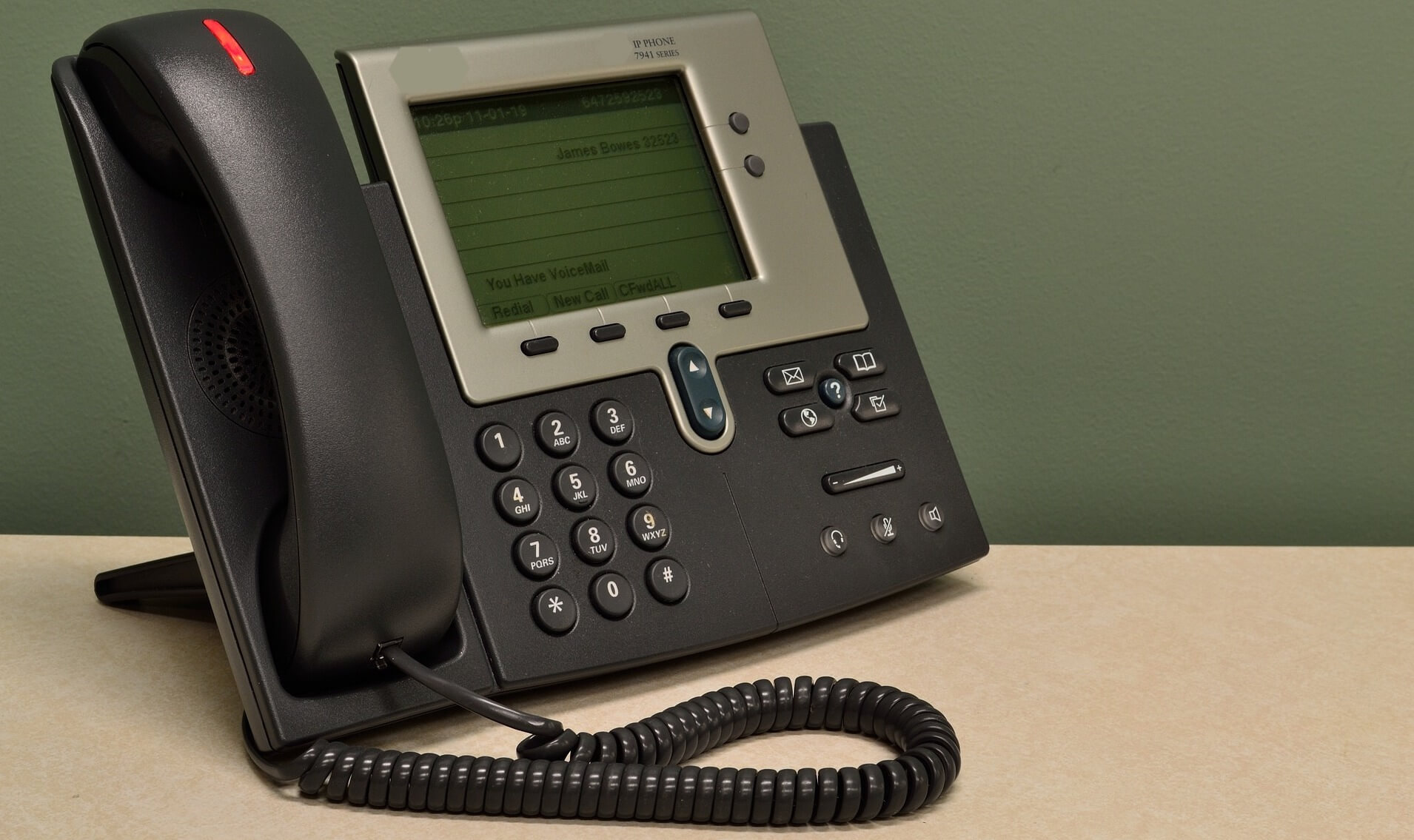For the last decade, small businesses across the country have used VoIP phone systems to reduce costs. Old-school landlines are now in sharp decline, with enterprises leveraging internet services and small business VoIP providers to help unify their communications.
But while VoIP saves money and simplifies communication, it has also created new questions for businesses. One of the most common issues small businesses now face is not whether they should switch to VoIP, but if they should buy or lease your VoIP phone hardware.
Most providers will offer both options, making this one of the most common questions we hear from customers. Each option has its own advantages, and figuring out which one is best for your business can be tricky. To help you make a decision, we’ll go over some pros and cons of buying versus leasing your VoIP equipment.
Related Reading: Why is VoIP Cheaper than a Landline?
Leasing VoIP Phone Hardware
Leasing a phone system can work in one of several ways. You can choose between renting and leasing to own, with the second option leaving you with the hardware you use. The pros of leasing are:
Advantages of Leasing VoIP Hardware
Minimal Upfront Costs – Since you aren’t purchasing the hardware, your main cost is going to be a monthly subscription fee paid upfront (if applicable). This is invaluable when you’re expanding or scaling up operations and need to reduce initial expenses.
High-Quality Equipment – VoIP operators often provide leasing clients with access to the latest tech. This can help your business improve communication and ensure your VoIP phone system functions at the highest level.
Regular Upgrades – If you lease equipment, your provider will include periodic upgrades similar to the way most mobile phone plans offer new phones every few years.
Tax Deductible – Leases are usually tax deductible on a quarterly basis. This makes it slightly superior to buying, especially since you know your costs ahead of time and can plan your taxes ahead.
Disadvantages of Leasing VoIP Hardware
Leasing VoIP phone hardware is typically a good option for small businesses that want to reduce their financial burden, but it also comes with several downsides.
Fewer Options – The wide variety of VoIP phone options on the market today means that no provider can offer everything. To lease phone hardware, you’ll need to choose from the equipment available from your chosen provider, even if you’d prefer a different system.
Lack of Flexibility – While lessees have access to the latest technology when they initially lease equipment, that may not last for the entire lease. Leasees are subject to upgrade schedules and use terms, so they can’t brand, modify, and otherwise change hardware without working with the provider.
Higher Administrative Burden – Leasing VoIP hardware require regular payments, which can increase administrative needs and alter your budget. Most businesses consider this only a minor disadvantage, however, because lease fees are often bundled into their regular internet phone system payment schedule.
Purchasing VoIP Phone Hardware
Although leasing is a great choice, many businesses choose to buy VoIP phone hardware. Purchasing VoIP hardware is often simpler than leasing, and comes with its own array of advantages and disadvantages
Advantages of Purchasing VoIP Hardware
Wider Selection – When you buy your own hardware, you can choose any phone system you want. For example, you can get advanced phones without having to opt into a more expensive monthly plan; something leasing doesn’t offer.
Increased Budgetary Control – Enterprise leasing plans are cheaper upfront, but they can be more expensive long-term. By purchasing phone hardware for a set cost, businesses can control how much they spend upfront and potentially decrease their long-term costs – although this will also depend on maintenance and upgrade needs, a concern you’ll find in our disadvantages section.
Freedom – With your own VoIP phone hardware, you can choose your own phone service provider; your own upgrades and customizations; your own software. If your business needs a flexible VoIP solution, buying may be the better overall option.
Disadvantages of Purchasing VoIP Hardware
Higher Initial Costs – No matter how you slice it, you’re going to pay more for the privilege of owning your own VoIP technology, including phones, base stations, and fax solutions.
Maintenance and Repairs – If you own the equipment you use, making sure it works is on you. This isn’t much of a problem in the short term, but costs can balloon if you use the same equipment over long periods of time and have to deal with maintenance issues for older equipment. This can not only affect your budget, but also your IT or office team, as someone needs to actually make the repairs.
Replacing Hardware – Your equipment is your own – and upgrading to newer devices and base stations will come out of your own budget. Replacing hardware will also place a higher administrative burden on whoever is tasked with researching and purchasing new hardware.
Is Buying or Leasing the Smarter Option?
There’s no one answer to whether buying or leasing is the best choice. Both options come with their own benefits and drawbacks that will affect your business’s communication, budget, and administrative burden.
There are, however, certain situations in which buying or leasing will come out the winner. Businesses that need to expand VoIP capabilities rapidly without making a down payment are better off leasing, for example. In that same vein, larger businesses with dedicated IT personnel that need increased flexibility may want to purchase their own equipment so they don’t have to work within provider user terms.
Regardless of the option you choose, if this is your first time switching to VoIP, you’ll likely end up with lower costs compared to your traditional phone system. ClarityTel regularly helps businesses leverage VoIP services to save up to 60% on their current setup. Research your provider options to ensure you’re working with a partner who will help you see similar advantages as you make a change.
